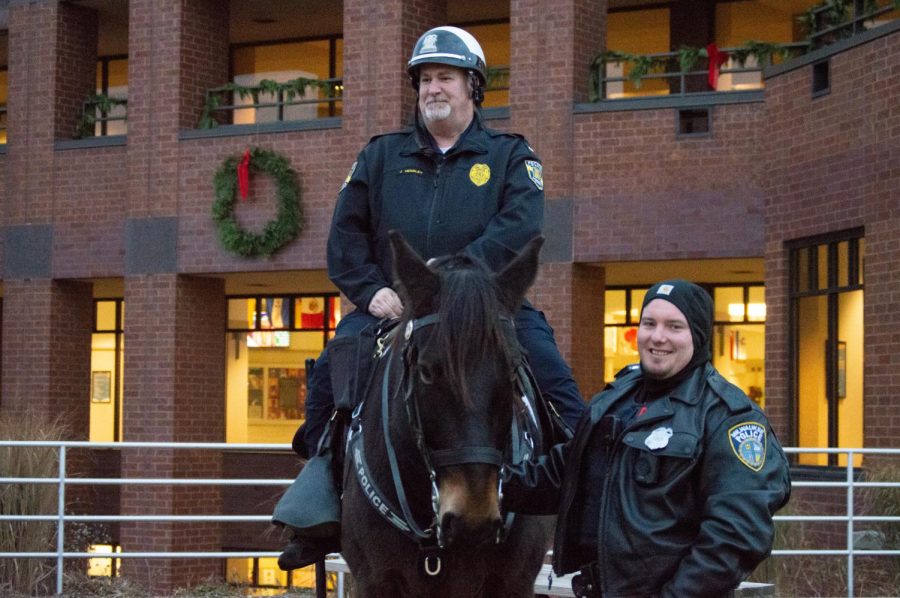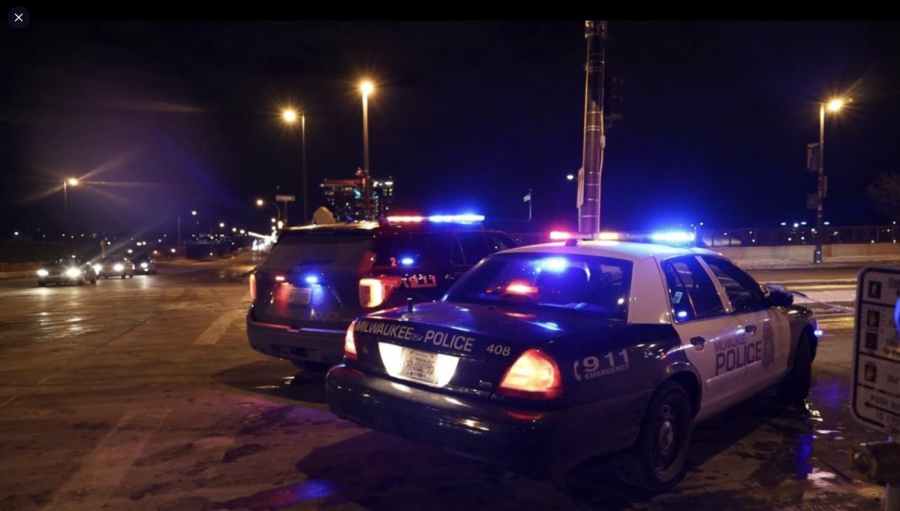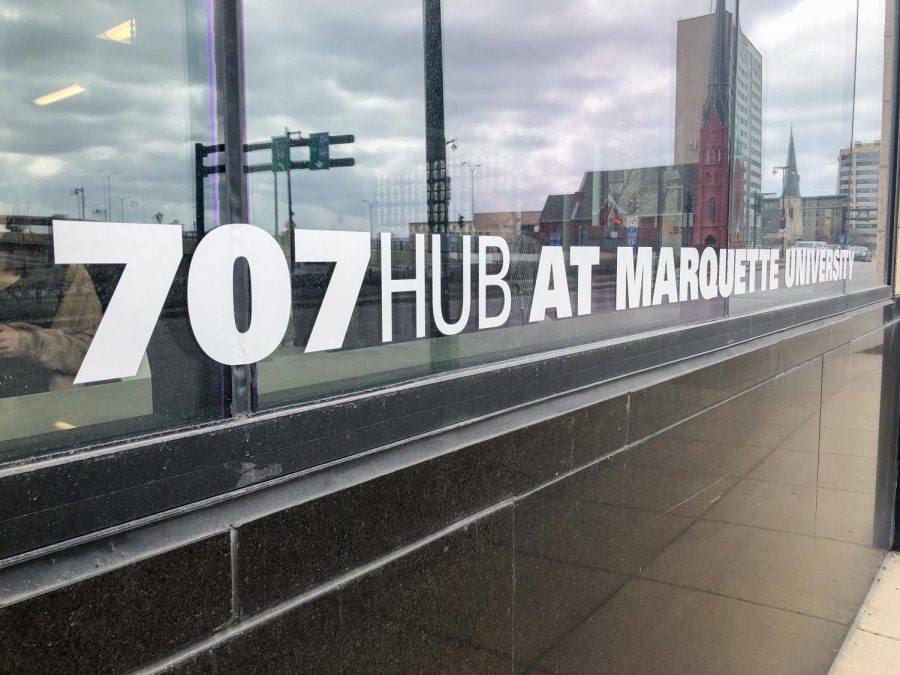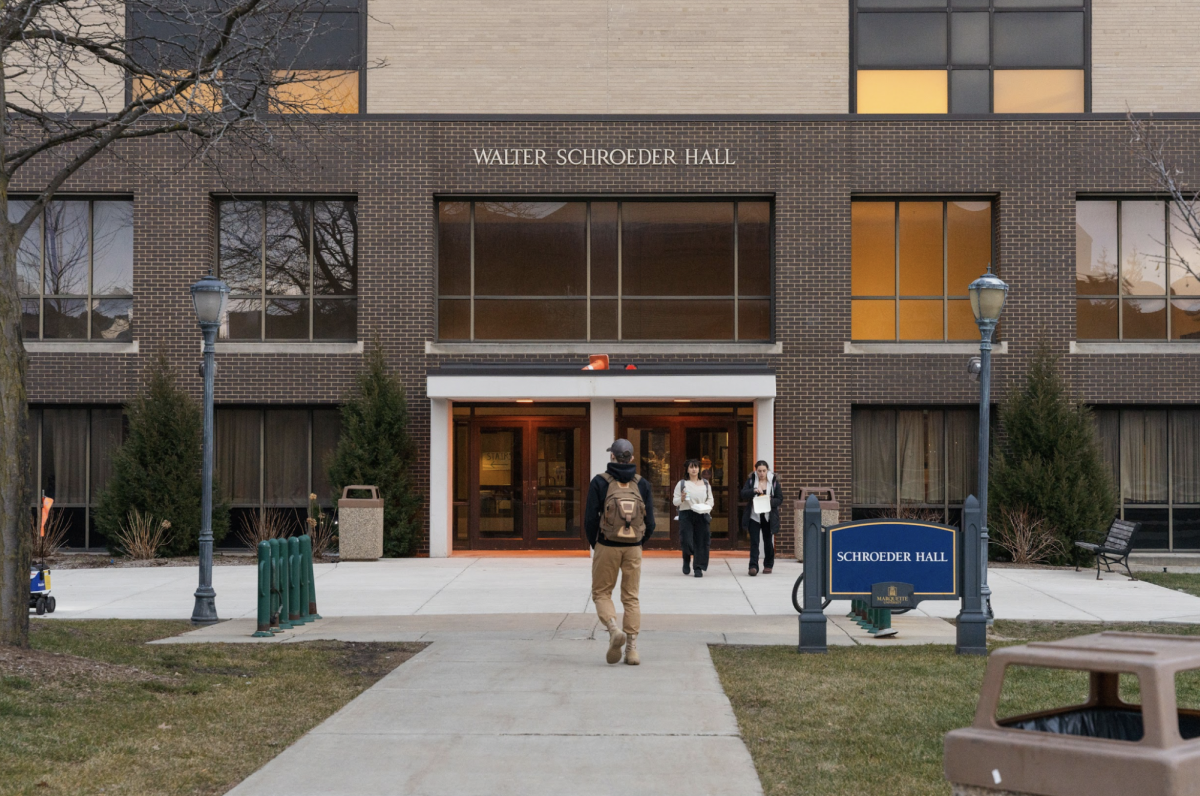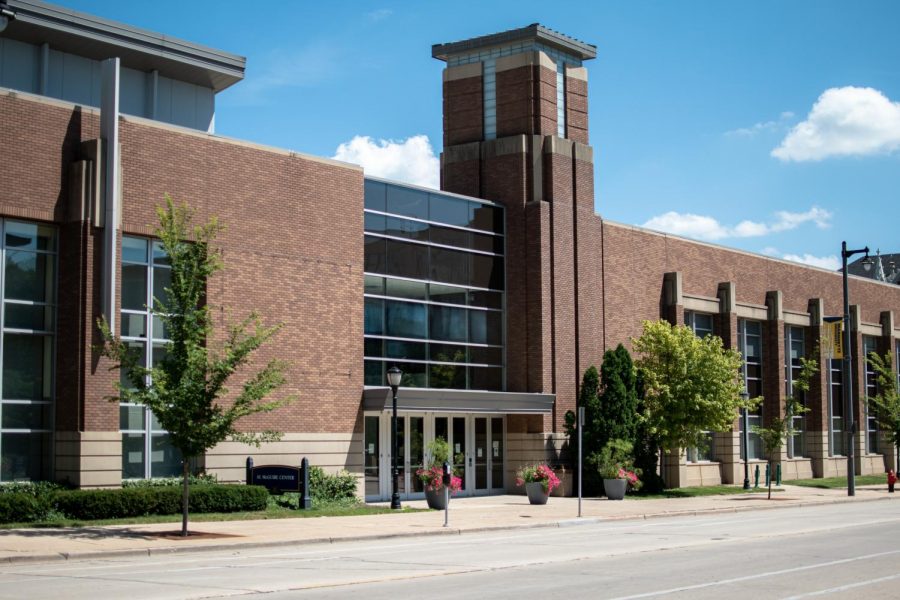After a worldwide outcry against police brutality and racial injustice in this summer after the recent deaths of George Floyd, Breonna Taylor and Milwaukeean Joel Acevedo, many are calling not just for reform, but for the police to be defunded or abolished.
In 2013, Wisconsin Act 265 authorized Marquette University to create its own police department. In 2015, this vision came to fruition. Formerly a Department of Safety, the Marquette University Police Department was then able to enforce state and federal laws with the same authority as other law enforcement.
MPD standard operating procedure 230 provides that Wisconsin law enforcement agencies may assist another with “law enforcement efforts within the requesting agency’s jurisdiction.” This includes the use of specialized equipment, facilities and trained personnel.
An example of this was when MUPD responded to the Molson Coors shooting in March.
In June, the Marquette Academic Workers Union signed a petition calling universities to cut ties with police departments. This followed the announcement that the University of Minnesota would be cutting ties with the Minneapolis Police Department.
In Minneapolis, where the death of George Floyd took place at the hands of four police officers, the City Council announced its plan to defund their police department and to create a more “holistic” public safety force, according to National Public Radio.
Similarly, the Milwaukee Public School Board of Directors unanimously voted to end more than 25-year-old contract with the Milwaukee Police Department, according to the Milwaukee Neighborhood News Service. The contract, enacted in 1993, allowed MPD to aid in running the Truancy Abatement and Burglary Suppression program.
What is MUPD’s place in all of this?
MUPD’s Policy and Procedure Manual has a section regarding “Fair and Impartial Policing.” The policy prohibits the department from racial profiling and other bias policing, such as factors based on gender, religion or financial status. The actions of MPD do not necessarily reflect those same values.
In 2018, the American Civil Liberties Union reported data that showed Black and Latino minorities are targeted by police more than their white counterparts — specifically by the Milwaukee Police Department’s stop-and-frisk practices.
Those who have been killed by police officers in southeast Wisconsin have also been overwhelmingly people of color. The Milwaukee Journal Sentinel has reported 18 deaths at the hands of officers over the past 20 years. Of those 18, 11 were under the jurisdiction of MPD.
Of the 2020 General Fund for the City of Milwaukee, over 45% went towards the police department.
From 2015 to 2017, the Journal Sentinel reported that police misconduct in Milwaukee cost taxpayers at least $17.5 million in legal settlements. This forced the city to borrow money — bringing $17.5 million to $21.4 million including interest.
Eric Rorholm, a senior in the College of Arts & Sciences and chair of the Marquette College Democrats had been protesting police brutality for over a month.
“I think defund the police is a really neat movement because even though it’s a really flashy headline, deep down, it’s a fight over a municipal local government budgets,” Rorholm says.
Rorholm says he hopes that the city will take some of the “boundless” money given to MPD, and instead invest it in health services, housing, transportation and eliminating things like environmental racism and food deserts.
“Reinvesting away from the police into the community is going to be really helpful, I think,” he says.
Kalli Noll, a sophomore in the College of Arts & Sciences and a member of the conservative student group Young Americans for Freedom, described the movement as “kind of crazy.”
“The police exist for a reason, and while there may be some issues, at the end of the day they can save people in life or death situations,” Noll says. “These crimes will not stop if police were to be abolished, and it would be left up to us to protect ourselves in dire situations.”
However, Rorholm says that defunding the police does not mean abolishing public safety, rather removing militarized equipment.
“It means removing responsibilities from the police that they’re not equipped to handle and instead, equipping professionals and organizers and social workers to do the work that — for a long time — we’ve sent police to do, that, quite frankly, isn’t fair for citizens or for police,” he says. “We expect them to deal with everything, from parking tickets to car crashes to somebody who’s mentally unwell having an episode on the street, and it really was a recipe for disaster from the very beginning.”
He describes the current state of the police an “organizational failure.”
Both Rorholm and Noll say the conversation surrounding defunding the police is especially poignant in the context of Milwaukee, a city of minorities that are often the victims of bias.
“I understand that police can be bias, and that is not OK. However, police aren’t the only bias people in the world, There are biased teachers, students, nurses, doctors, firemen, lawyers and everything in-between,” Noll says. “Milwaukee should look at their police, but also other professions that make important decisions for the city to have the most well-rounded policy that is best for its citizens.”
While Rorholm doesn’t support MPD, as a campus safety student employee, he sees how MUPD is run firsthand.
“In my mind, MUPD is what a defunded, stripped-down police department would look like,” he says. “MUPD is designed strictly to protect students and they excel at that … they are not bogged down with the issues that usually plague police departments.”
“I think MUPD and MPD should work together to understand the people who they are protecting more,” Noll says. “Getting more involved in the community would be a good option for them. But, this is a two way street. The police need to understand the people, but the people also need to understand the police. If we as citizens can work to understand each other, I think things would be a lot better.”
The MUPD Advisory Board declined to comment. MUPD and MPD did not respond for comment.
This story was written by Alexa Jurado. She can be reached at [email protected].

